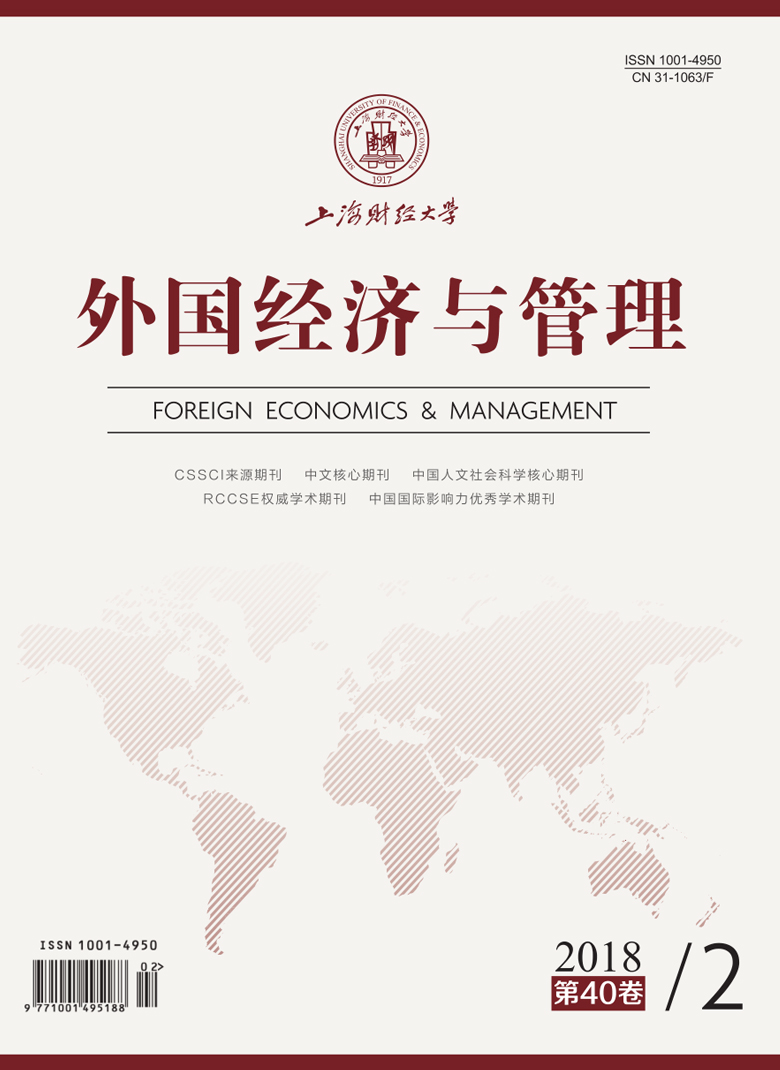Appropriate ownership choice can significantly increase the economic benefits of M&As, and inappropriate ownership choice may lead to disparities between resource input and risks, following with inefficient integration activities and the consequences that may be lower than expected. The international business research points out the motives for foreign investment covered by the international behavior of enterprises. Thus, do motives for cross-border M&As affect ownership choice? The academic research about these topics is relatively rare. In respect to the actual situation of the business industry, as a result of unclear investment motives in some Chinese enterprises, it has shown a bias towards the choice of sole ownership in this process. This paper’s sample the majority of covers cross-border acquisitions announced from January 1, 2001 to September 30, 2016, involving listed Chinese acquirers from BVD-Zephyr database. This paper integrates resource-based view (RBV) in international business (IB) to construct triangular theoretical analysis framework; then, it analyzes the impact of Chinese acquirers’ cross-border M&A motivations on ownership choice, and examines the constraint effect of enterprise heterogeneous resources factors on the relationship between motives of Chinese acquirers and ownership choice; finally, the hypotheses of this paper are tested by econometric analysis.According to the empirical analysis, the main conclusions are as follows: first, the motives for cross-border M&As have significant impacts on ownership choice; we find that these Chinese listed companies are more likely to opt for a higher ratio of equity stake when they intent to seek new markets, compared to firms whose intention is to acquire strategic assets; this means that in the cross-border M&A activities of Chinese enterprises, there are specific preferences of ownership choice for those with different types of motives; second, as important factors in the heterogeneous resources, Chinese acquirers’ profitability have moderated effect; specifically, Chinese acquirers’ superior profitability can significantly moderate the relationship between motives and ownership choice, that is compared to firms whose intention is to acquire strategic assets, the enterprises who want to expand foreign market will be significantly weaken higher proportion of equity M&As with the continuous improvement of firm profitability; finally, we also find that the moderating role of firm profitability in the effect of the motives for M&As on ownership choice will be differentiated to a certain extent in different circumstances. The findings reveal the relationship between motives of cross-border acquirers and ownership choice and the moderating role of firm profitability. This paper provides theoretical guidance for Chinese listed companies to make scientific and rational ownership choice in cross-border M&As and empirical evidence from China for international academia.
 / Journals / Foreign Economics & Management
/ Journals / Foreign Economics & ManagementForeign Economics & Management
JIN Yuying, Editor-in-Chief
ZhengChunrong, Vice Executive Editor-in-Chief
YinHuifang HeXiaogang LiuJianguo, Vice Editor-in-Chief
Do Motives for Cross-border M&As Affect Ownership Choice? The Moderating Role of Firm Profitability
Foreign Economics & Management Vol. 40, Issue 02, pp. 51 - 67 (2018) DOI:10.16538/j.cnki.fem.2018.02.004
Summary
References
Summary
[1]Gu L L, Robert R., Do Chinese Acquirers Fail in Overseas M&As?[J]. Economic Research Journal,2011 (07): 116-129.
[2]He R. An Empirical Study on the Impact of Merger and Acquisition on the Long-term Shareholder Value of Acquiring Company[D]., 2014.
[3]Hong L Y, Chen, H F. Overseas Mergers and Acquisitions, Organizational Control and Investment Selection —Based on the Empirical Evidence from China [J]. Management World, 2015 (10): 40-53.
[4]Li Q Y, Tian C Y, Tang J X, et al. The Motives of Horizontal Mergers and Acquisitions: Efficiency Theory or Market Power Theory – A Case Study of Huiyuan Juice and Coca-Cola.[J]. Accounting Research, 2011(05):58-64.
[5]Liang Z H, Yu M J. RMB Appreciation and Profitability of Chinese Exporting Firms: Empirical Evidence Using Panel Data [J]. Journal of Financial Research, 2014(07):1-15.
[6] Lin J H, Zhang L. Choice of Ownership Strategies for Chinese Enterprises' Overseas Mergers and Acquisitions[J]. Finance & Trade Economics, 2013(09):76-84.
[7]Shao X J, Wu H M, Xiao L S, et al. Strategic Objectives and Performance of Cross-border Mergers and Acquisitions of Enterprises: China Evaluation Based on A Stock Market[J]. Journal of World Economy, 2012(05):81-105.
[8]Su J Q, Liu J. Research on the Motivation of Chinese Enterprises' Mergers and Acquisitions -- Based on the Comparison Between Western theory and Chinese Theory [J].Nankai Business Review,2013(02):57-63.
[9]Wang F B, Yang Y. The Differentiation and Integration of Foreign Direct Investment Behavior of Transnational Enterprises - An Empirical Study Based on the Market Value of Listed Companies[J]. Management World, 2013(3):148-171.
[10] Wu X M, Su Z W. Transnational Mergers and Acquisitions as the technological Catch-up Lever: Dynamic Capabilities Perspective[J]. Management World,2014(04):146-164.
[11] Zhang J H, Wei X J, Heike A. Analysis of the Determinants of the Success or Failure of Chinese enterprises' cross-boarder Mergers & Acquisitions[J]. Management World, 2010(03):97-107.
[12] Zhang X Z, Liu Z Y, Wang J. Research on the Relationship between Firm Size and R&D input[J]. Studies in Science of Science , 2012,30 (2): 265-274.
[13]Zhou S N, Wen H T. Study on M &A Performance Evaluation System Based on Industry Evolution, Motivation[J].Accounting Research,,2013(10):75-83.
Cite this article
Zhao Yi, Qiao Penghua. Do Motives for Cross-border M&As Affect Ownership Choice? The Moderating Role of Firm Profitability[J]. Foreign Economics & Management, 2018, 40(2): 51-67.
Export Citations as:
For
ISSUE COVER
RELATED ARTICLES




 , 1
, 1 8908
8908  9158
9158

